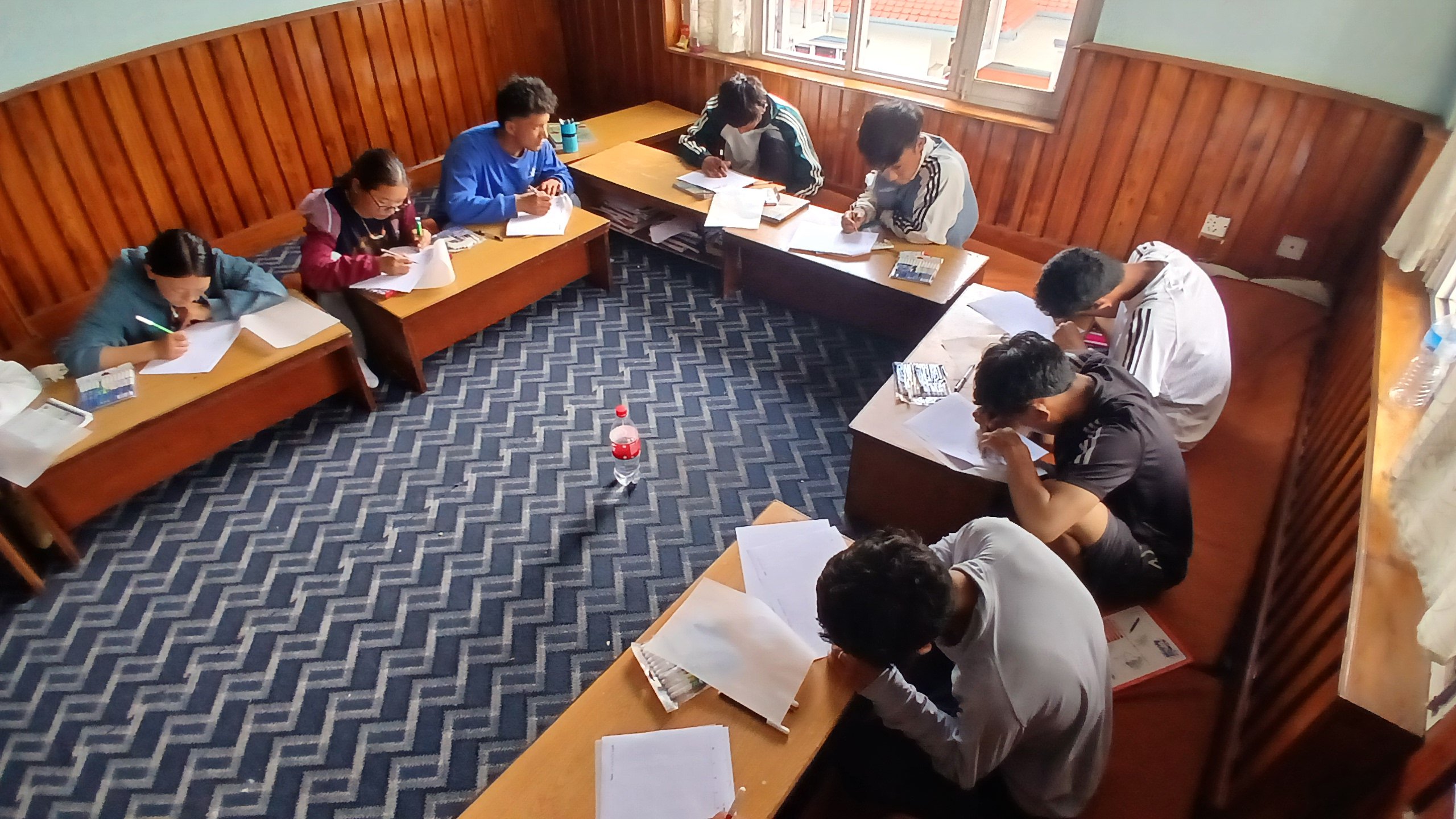 |
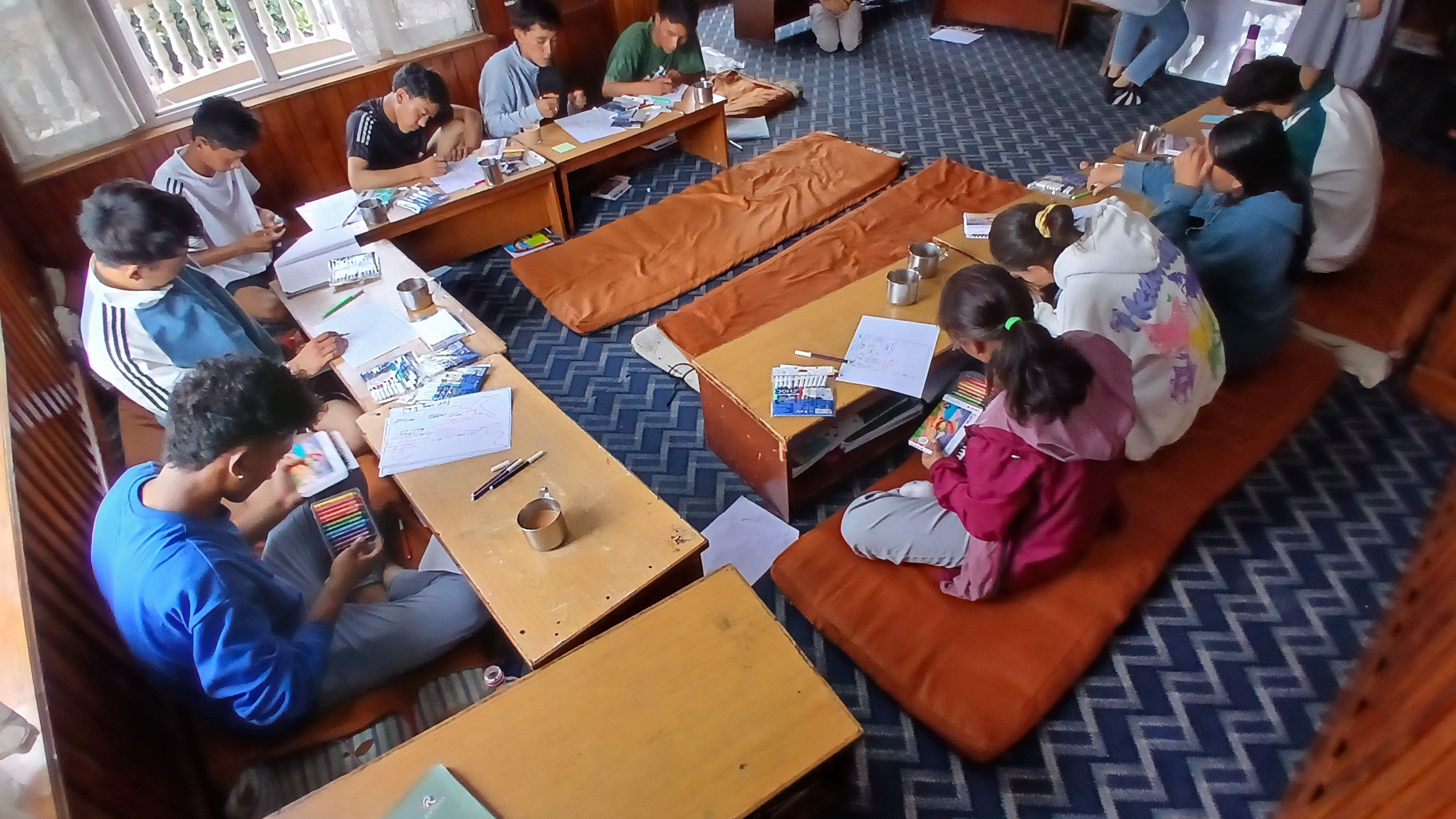 |
On July 24, 2024, our team visited the Snow Leopard Residence—a home for students from Dho Tarap, Dolpo here in Kathmandu who had just completed their Secondary Education Examination (SEE) from Crystal Mountain School in Dho Tarap, Dolpo. We conducted a workshop focused on exploring personal journeys, unlearning processes, and skill development. This workshop, organized as part of our ongoing efforts to engage young people in meaningful dialogue, aimed to empower students with tools for self-awareness, growth, and skill-building. In preparation for our upcoming visits in September, 2024 to assess the learning needs of communities in Lo Ghekar Rural Municipality, Mustang, and Dolpo Buddha Rural Municipality, Dolpa, this workshop served as a crucial step for refining workshops to be conducted in the field as we prepare to build skill-based courses under the ONGD-LLEST Project.
The workshop was designed to create a safe and reflective space where students could delve into their personal and collective experiences. Through carefully crafted activities, we encouraged participants to share their unique perspectives and connect them with broader themes of skills development. We guided students in recognizing their existing skills while also envisioning the future skill sets they wished to acquire.
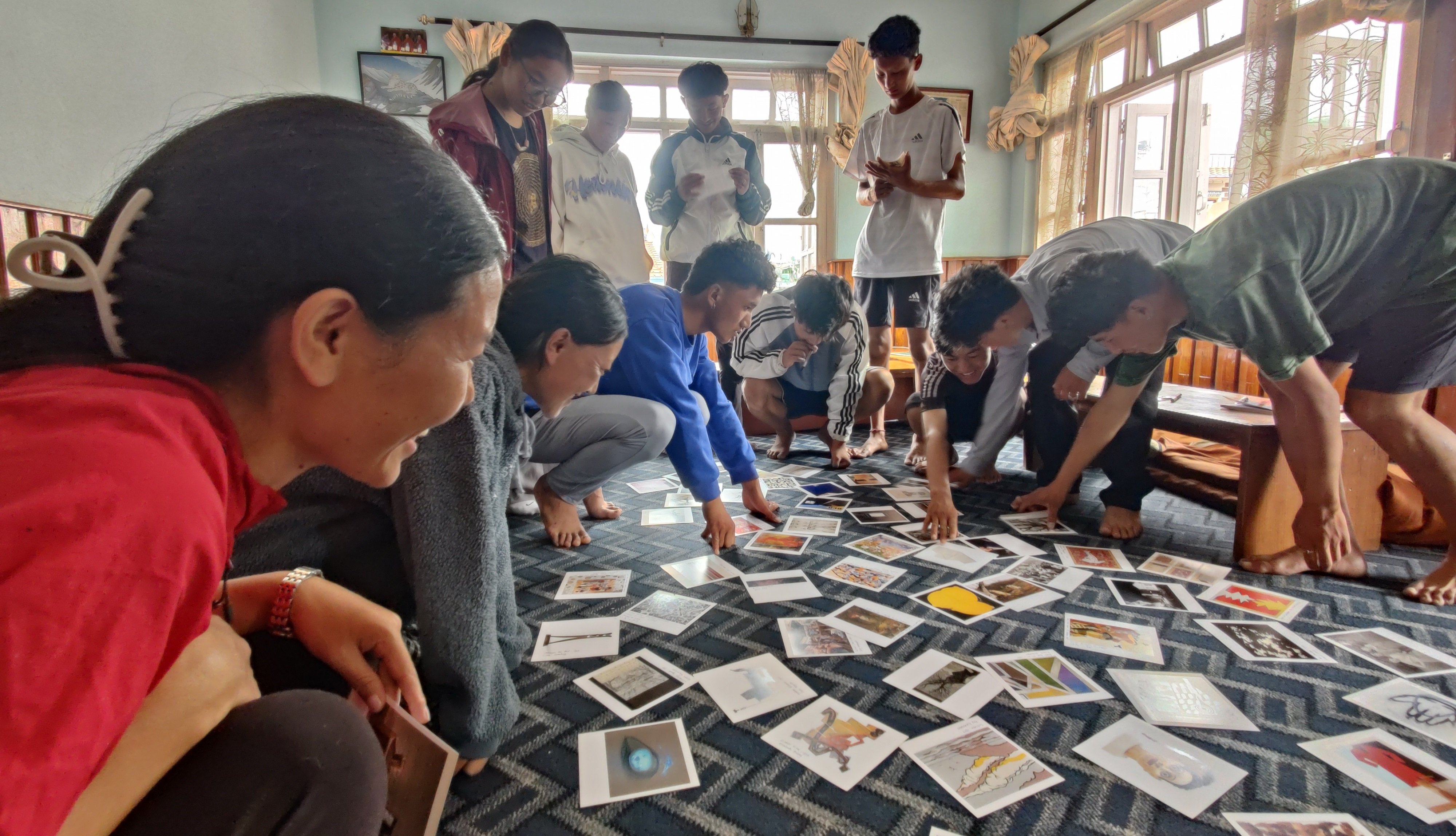 |
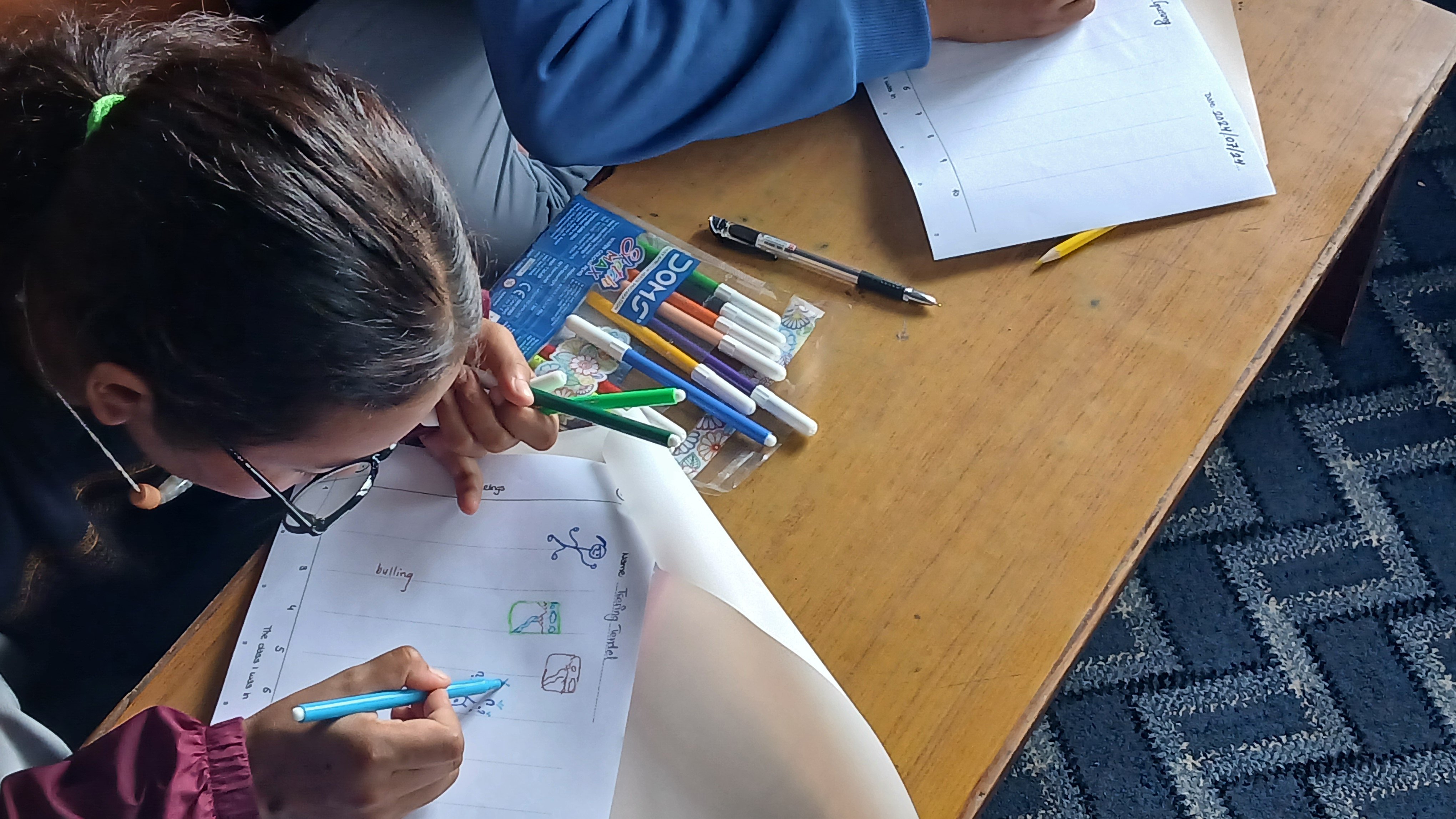 |
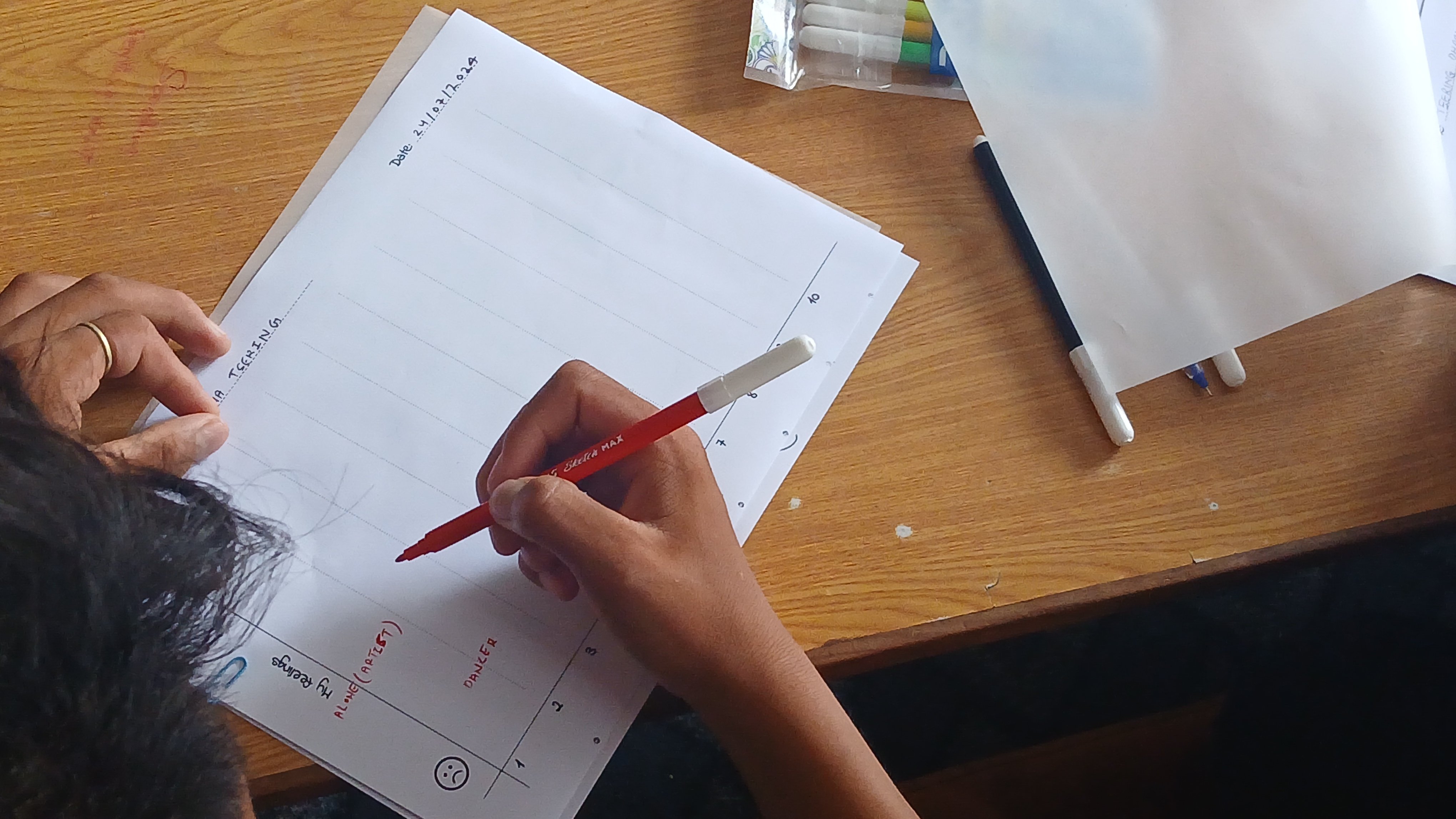 |
We began the workshop with an introduction activity that moved beyond the typical name, age, and hometown routine. Students selected image cards from a set that resonated with them, using these as a medium to introduce themselves. This approach allowed participants to share personal stories and experiences that added depth to their introductions.
Students also reflected on their journeys to Kathmandu and discussed what the concept of a journey means to them. Students then engaged in a reflective exercise, mapping milestones in their learning journeys from grade one onward. This activity enabled students to revisit memories, reflect on shared experiences, and identify common emotional stages. Introducing the concept of unlearning was another highlight of the workshop. We encouraged students to consider beliefs or habits they had let go of over time. The latter part of the workshop was about identifying skills and envisioning future success. Students listed down some skills anonymously and these were used for a charades game that energized the group. After this, students moved on to a skill mapping activity where they created symbolic representations of their current skills and the skills they wished to acquire. This exercise not only facilitated self-reflection but also encouraged artistic expression, enabling students to visualize their growth.
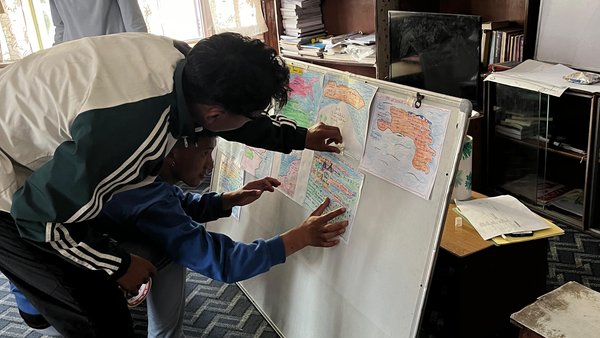
The workshop concluded with a reflection session where students categorized their feedback into what they found familiar, surprising, and thoughtful. The students found the activities engaging, and we also gained valuable insights into the Dolpo region, the educational experiences of students there, and the skills they aspire to develop.
Workshops such as this inform future sessions we will run. We’ve had a chance to understand what areas of personal learning, growth and self expression would be meaningful to explore in further programming. The lessons learned from this experience will guide us in scaling up and refining our workshops so that they resonate with participants from diverse backgrounds and meet their skills-development needs.
We are looking forward to more of such sessions —next in Lo Ghekar Rural Municipality, Mustang, and Dolpo Buddha Rural Municipality, Dolpa in September, 2024—where we will conduct workshops to assess the learning needs of these communities and foster deeper engagement with them. Stay tuned for more insights as we share our learnings and experiences from the field.